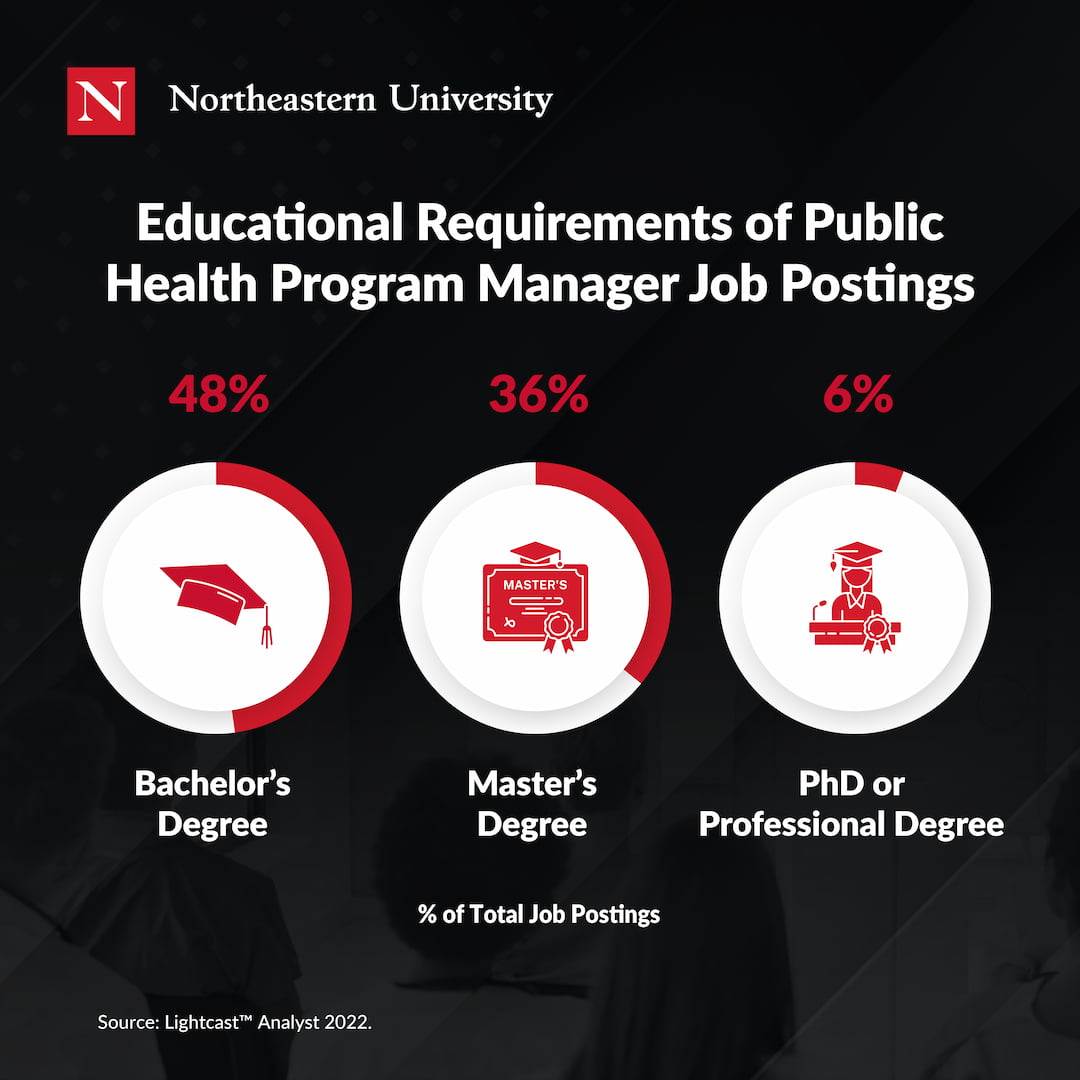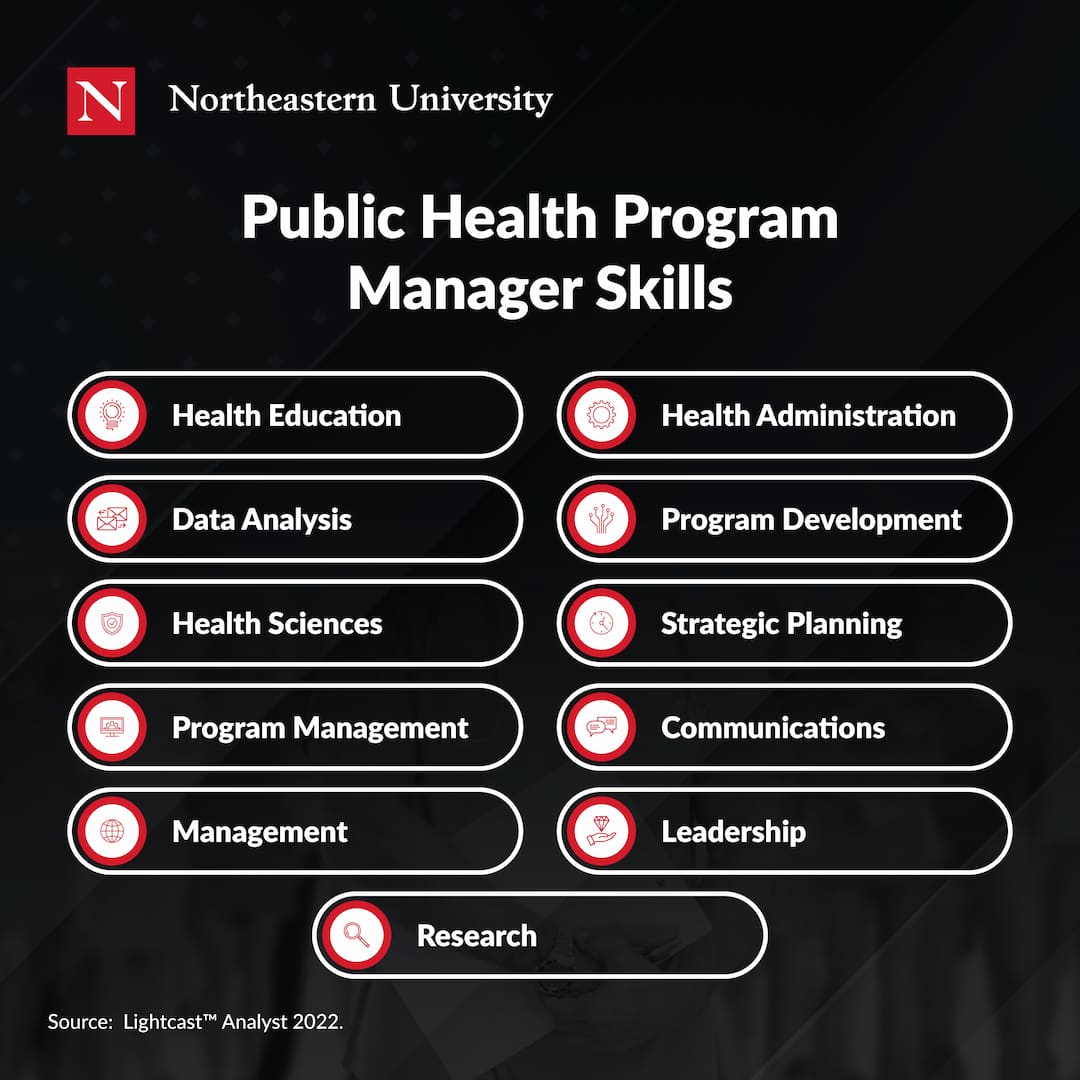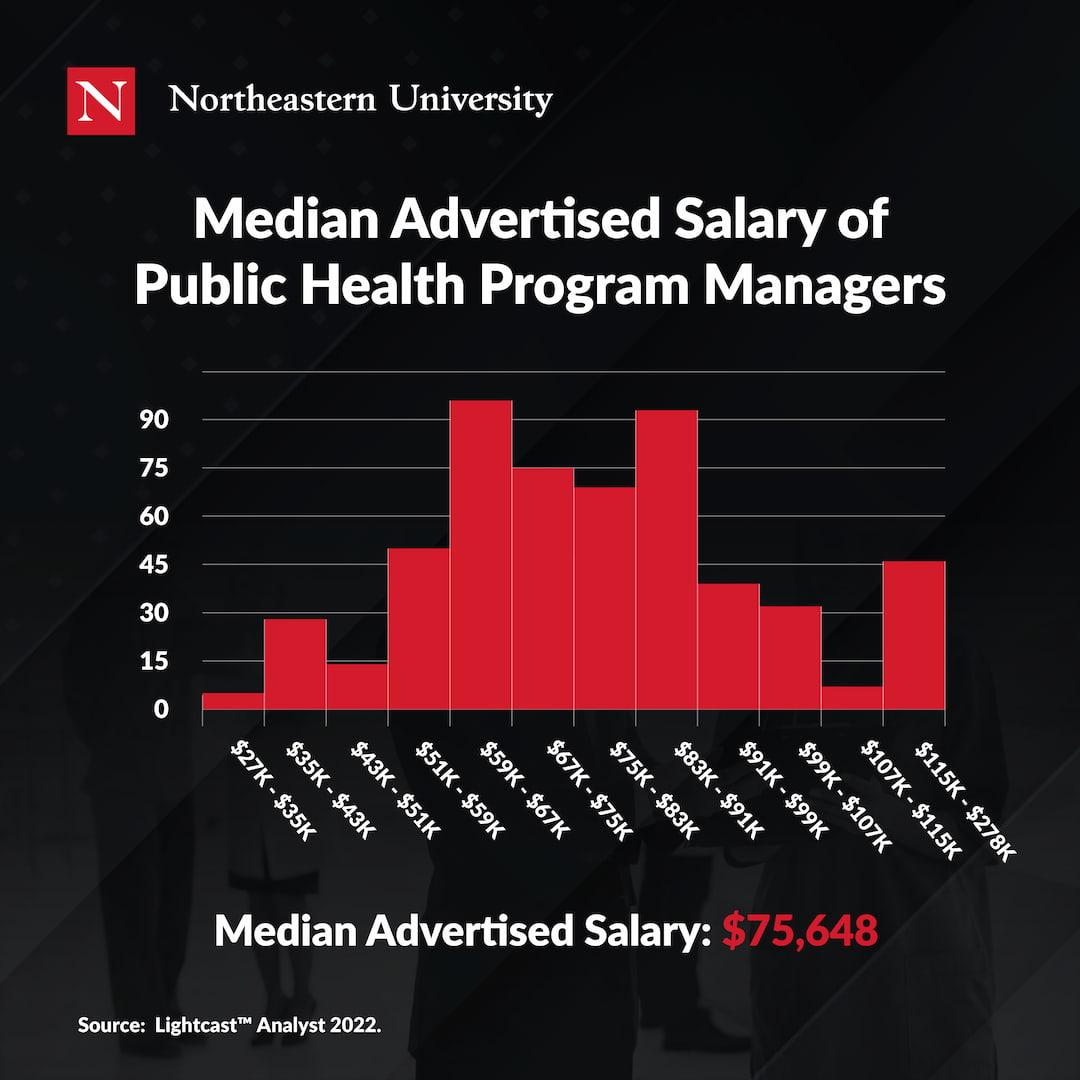There are many career paths available to those interested in supporting others’ overall health. While healthcare professionals focus on treating people who are sick, public health professionals are more interested in preventing illness from the start.
For those interested in a public health career, pursuing a program manager role is a great option. Here’s everything you need to know about what a public health program manager is, how to become one, and why it could be the right career for you.
What Is a Public Health Program Manager?
A public health program manager is a broad term within the field. “I think the title ‘public health program manager’ is such a wide scope,” says Emily Grilli-Scott, assistant program director of the Master of Public Health (MPH) program at Northeastern University. “When I hear ‘program manager,’ I immediately think in what and where and for whom.”

While ambiguous, those interested in public health program management are responsible for organizing and leading public health initiatives in their local community. They keep projects on track and on budget by efficiently allocating resources to accomplish a public health organization’s goals.
The specific duties of prospective program managers are highly dependent on the communities they hope to serve. For example, a program manager could organize a niche program focused on HIV and AIDS education at a local health center, or they might manage the school lunch program at Boston public schools. No matter the program, public health program managers touch the lives of the local community in many ways.
How to Become a Public Health Program Manager
If you’re interested in becoming a public health program manager, it’s essential to understand the necessary steps to achieving your professional goals. Here’s everything you need to know about breaking into this exciting career path.
1. Earn the Right Degree
The first and most important step to becoming a public health professional is earning the right degree. Since there aren’t many institutions that have a comprehensive public health bachelor’s degree program, most prospective public health professionals earn a BS in a science-related field and then enroll in a Master of Public Health (MPH) degree program. An advanced degree will increase your competitiveness and position you for more leadership roles within the public health space, such as a public health program manager.

2. Gain Industry Experience
Industry experience is an invaluable asset to prospective public health program managers. While there are many opportunities to gain experience post-graduation, students exposed to real-world experience during their coursework could have a leg up on others. That’s where a program like the one-year accelerated program at Northeastern University can give applicants a valuable advantage. Students who receive experiential opportunities in their coursework along with traditional MPH practicum experience have more experience to showcase on their resumés.
Regardless of which MPH program you choose, finding industry experience in public health isn’t too difficult. Grilli-Scott assures prospective public health professionals that “since COVID-19, in Massachusetts specifically, we’re really trying to uplift our local departments of public health and see where the strengths and opportunities are for students to get involved.”
3. Develop Essential Skills For Success
The foundation of any career path is the required skill sets needed to succeed. Public health has myriad skill requirements that any prospective public health program manager should try to develop if they hope to gain employment.
- Health education: Communicating important information concerning underlying conditions that impact a community’s health
- Health administration: Overseeing the operations of a public health initiative or program
- Data analysis: Reading and interpreting historical public health data to better understand a community’s needs
- Program development: Developing a public health program or initiative that targets a specific community need
- Health sciences: Understanding the various science elements of public health
- Program management: Managing the various components of a public health program
- Communications: Communicating effectively with staff, patients, and the community as a whole
- Management: Managing a team of public health professionals who are all working toward the same goals
- Leadership: Leading a team of public health professionals and the community at large
- Research: Evaluating public health trends and trying to find solutions

Why You Should Consider Becoming a Public Health Program Manager
There are many reasons why becoming a public health program manager is a worthwhile career choice. This career path offers a competitive salary, an excellent career outlook, and opportunities to make a difference in communities.
Competitive Salary
As a public health program manager, you’ll earn a competitive salary. According to a Lightcast report, the median advertised salary of public health program managers is $75,648. However, there’s varying earning potential depending on the industry you decide to enter. For example, those interested in program management in public health technologies earn a higher salary than many other professions in the health sector.

Positive Job Outlook
“There are definitely opportunities for growth in public health,” says Grilli-Scott. While the pandemic showed the various flaws in healthcare and public health systems, it also revealed a need for people with MPH degrees in all industries to take a closer look at community health and emergency preparedness.
As a result, there’s been an increasing interest in incorporating these positions into various business sectors. In many ways, this shift won’t be too difficult considering the intersection public health has with other fields and industries. “Fields like public mental health and public health technologies are starting to acknowledge that public health professionals need a seat at the table,” Grilli-Scott says.
Opportunity to Make a Difference
Public health has become an increasingly important field for young people to take an interest in. While many people go into the medical field to help others, public health is a wonderful way to make a difference in your community and future generations to come. Public health is “all about the spaces you live, work, and play in,” says Grilli-Scott, “and how those spaces contribute to your health and well-being.”
Take the First Step to Becoming a Public Health Program Manager
Take the first step to starting a fulfilling career in public health by finding the right program to earn your MPH degree. Institutions like Northeastern University offer several options for students hoping to gain valuable industry skills and experience to excel in the field.
The Master of Public Health/1-Year Experiential program at Northeastern is a great option for aspiring professionals who want to obtain real-world experience during their studies. It’s an accelerated, experience-based degree for professionals who want to promote and protect the health of all communities. As a full-time, fully immersive degree program, it challenges students to find solutions to today’s pressing public health issues alongside faculty guidance and expertise.






Related Articles
Jackney Prioly Joseph on How Her MPA Helped Her Career
Master’s in Nonprofit Management vs. Public Administration
How an MPH Clarified One Alumna’s Career Path